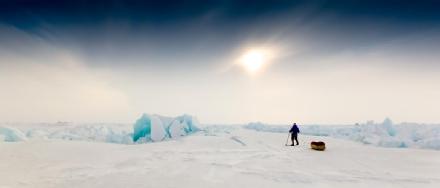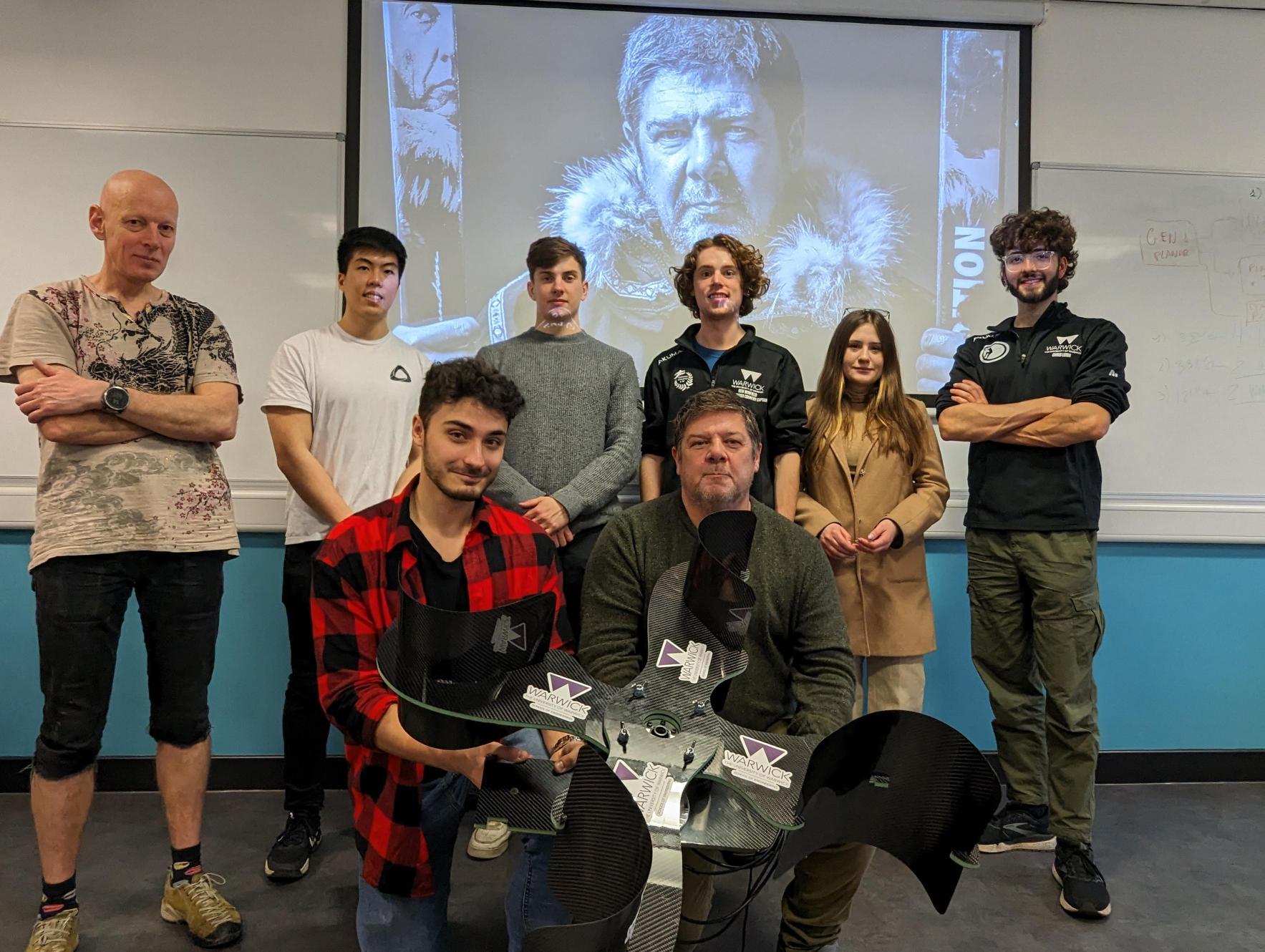Arctic Explorer aims to break World Record – with help from University of Warwick engineering students
An explorer is aiming to create a new world record for the longest continuing solo science based expedition trip across the Arctic, using a power source created by engineering students at The University of Warwick.
Coventry born Mark Wood is planning to cross over 1250 miles of Arctic tundra on his 100 day ‘Solo 100’ expedition, which begins next week.
This would set a new world record, whilst Mark also aims to highlight the impact of climate change and rising temperatures on the delicate Arctic ecosystem.
Six Warwick students are helping Mark on his journey, having designed and created a power system for him that will keep his cameras, video recorders and satellite phone charged over the 100-day trek.
One of the students who has been involved in designing the device, Chris Leigh, said:
“It’s been a real challenge to create a power system that can charge all of Mark’s electronic equipment and is suitable to be used at such low temperatures in remote conditions.
“We decided that wind power was our best option and have spent months refining the design. We’re wishing Mark the best of luck on his expedition.”
The challenges of designing a working system to power batteries in the Arctic conditions are complex. Other options like solar panels are not suitable because electronic complications from the freezing temperatures, which can dip to minus 40 degrees.
The power system is made of carbon fibre and aluminium alloys and operates like a wind turbine which Mark can set up at night whilst he sleeps.
The turbine is set up outside Mark’s tent, with the devices then plugged in and placed inside his sleeping bag, to make sure they don’t freeze overnight.
The system is light at just over 2kg, and folds down to a flat pack, as it is vital to add no excess weight to the 185kg sled Mark will be pulling.
Mark is a veteran explorer, having previously led expeditions to the Himalayas, Antarctica and the Arctic. He commented:
“This is the longest solo science-based expedition of all time, and this technology from Warwick’s students is integral to it. To maintain electrical power over more than three months, in some of the worst weather conditions in the world, is previously unheard of.
“I hope Solo 100 can highlight the environmental damage we’re doing to the Arctic and inspire the next generation of adventurers and conservationists”.
ENDS
Notes to Editor
Pictures attached.
The students who designed the turbine are available for interview.


